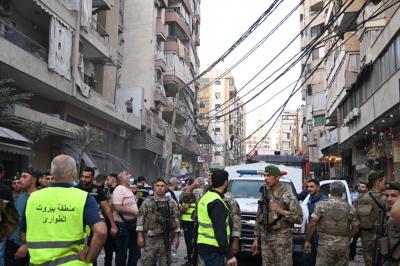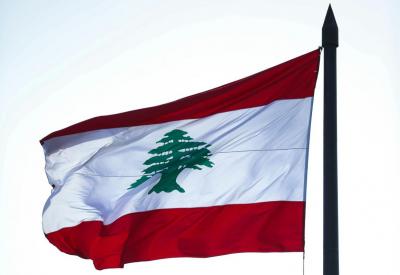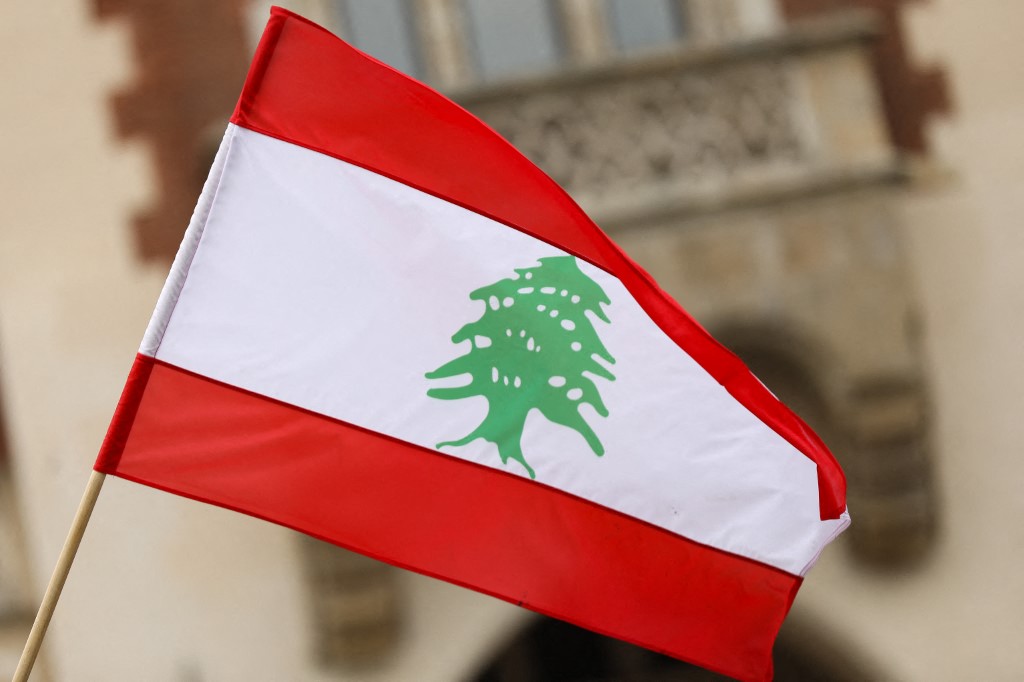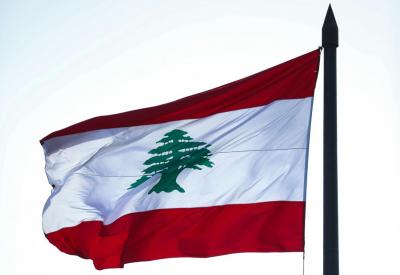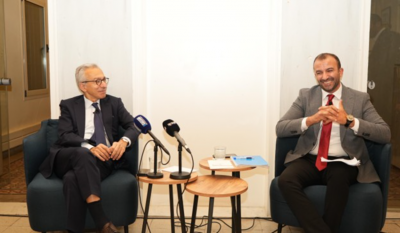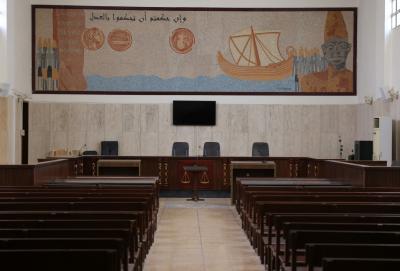To avoid resorting to political experts and analysts from all sides, academics and theorists, politicians and local or international scientists, and any other category of citizens and non-citizens, AlSafa chose to ask artificial intelligence to generate an ideal vision for the rebirth of Lebanon—one with an international form in harmony with its people, the displaced or refugee populations on its territory, and other countries around the world.
AI describes Lebanon as a small country, but one that has historically held significance on the international stage. Despite its size (approximately 10,452 square kilometers), it exerts considerable influence thanks to its strategic location and rich history. However, the country faces serious internal and external challenges, ranging from sectarian conflicts to economic collapse and regional power influences.
Therefore, AI sees strong arguments for the need for Lebanon to rethink and reform its governance system to meet its current challenges. The current political structure, based on sectarian power-sharing, has become a major obstacle to progress, stability, and development.
Here are the key reasons for the necessity of Lebanon’s rebirth:
1. Sectarian Power-Sharing Leading to Political Deadlock
Lebanon’s unique governance model, known as confessionalism, distributes power among the country’s various religious sects. While this system aimed to maintain peace and political balance after the civil war (1975–1990), in practice it has created political deadlock and fostered corruption. Political leaders often prioritize sectarian interests over national ones, making consensus difficult and hindering effective governance. A stark example: the last presidential election took years to finalize due to deep sectarian divides, and forming a cabinet often takes months as sectarian leaders struggle over power and influence.
2. Corruption and Mismanagement
AI notes that the sectarian political system has contributed to widespread corruption. Political parties often rely on patronage networks that serve their communities, resulting in inefficiency, poor resource allocation, and neglect of essential public services (education, healthcare, infrastructure, etc.). Lebanese institutions have been weakened by these networks, making meaningful reform difficult. A clear example is the 2020 Beirut port explosion—a catastrophe born of years of neglect, revealing how corruption and mismanagement have eroded public trust. Even today, accountability remains elusive.
3. Economic and Social Crisis
The economic and financial collapse, which began in 2019, highlighted the fragility of the current system. Lebanon has one of the world’s highest public debt-to-GDP ratios, a collapsing currency, rampant unemployment, and a destroyed banking sector. The current system has failed to address these systemic issues. A new governance model could focus on sustainable economic policies and diversification instead of perpetuating elite interests.
The economic crisis culminated in the total disappearance of Lebanese citizens’ dollar and foreign currency savings held in banks. Millions suddenly found themselves stripped of lifelong savings. Several million now live in poverty while political elites and their allies cling to wealth and power, perpetuating inequality.
Adding to the economic catastrophe is the influx of over two million Syrian refugees fleeing the bloody war since 2011. This number represents more than a third of the Lebanese population, placing enormous strain on the country’s infrastructure and causing severe shortages in water, electricity, and fuel.
4. Laxity and Incompetence of Leaders
Because political elites control the country through sectarian blocs, they often protect one another from accountability. This undermines the rule of law and allows these mafialike groups to operate with impunity. Institutional reforms are needed to create a system where leaders are held accountable regardless of sectarian affiliation. Political leaders often refuse to take responsibility for their failures or for corruption, and the judiciary is frequently seen as politically compromised, refusing to prosecute the corrupt.
5. Regional and International Pressure – Subordination to Foreign States
Lebanon is heavily influenced by regional powers (like Syria and Iran), which has exacerbated internal conflicts. The sectarian system sometimes aligns too closely with external actors, weakening Lebanon’s ability to make independent decisions. Abandoning confessionalism could enable Lebanon to engage more effectively with its regional and international partners, free from foreign interference.
A fatal example of such interference is Hezbollah’s influence over Lebanese politics, aligned with Iran’s regional strategy. This has contributed to internal divisions and limited Lebanon’s foreign policy autonomy, while also opening the door to political intervention by the United States and Europe, and military intervention by Israel.
The Current Leadership: Values, Effectiveness, Honesty...
Before moving on to conclusions that could help Lebanon rise from the ashes, and to recommendations, AI provides an overview of the leadership currently governing the country and its responsibilities.
AI Assessment of Current Lebanese Leaders and Governance System
Lebanon’s current leaders face enormous challenges, and an AI evaluation analyzes their effectiveness, governance, and the key issues affecting the country today. Given Lebanon’s current crisis, here is how AI assesses the leaders' performance in key areas:
1. Political Deadlock and Laxity
Main issue: Lebanon’s sectarian power-sharing system has led to paralysis and continued inaction. In recent years, leaders have struggled to make decisions or undertake significant reforms due to internal strife and deep political divisions. These conflicts often reflect the subservience of parties to external political blocs.
Evaluation: Leaders are ineffective and often incompetent when it comes to tackling the root causes of Lebanon’s crises. Many political figures belong to the old guard and prioritize sectarian loyalty over national unity. The inability to elect a president or form a functioning government for long periods illustrates their leadership failure.
Score: 2/10 in governance.
2. Corruption and Accountability
Main issue: Corruption is endemic in Lebanon’s political system, with many leaders accused of embezzling public funds or using their positions for personal gain. This is worsened by weak institutions and lack of transparency.
Evaluation: Leaders are deeply corrupt and have contributed to Lebanon’s current economic collapse. Investigations into the Beirut port explosion, for example, have stalled due to political interference. The elite’s reluctance to fight corruption reflects a broader failure of governance.
Score: 1/10 in accountability.
3. Economic Mismanagement
Main issue: Lebanon’s economy is in freefall, with runaway inflation, a wrecked banking sector, and record poverty levels. Political leaders have not implemented needed reforms to stabilize the economy or rebuild institutions.
Evaluation: Leaders have been largely passive in the face of economic collapse. Many are disconnected from the struggles of ordinary citizens, all while preserving their political and financial interests. There is a lack of long-term vision, and policies have been reactive rather than proactive.
Score: 2/10 in economic leadership.
4. Public Trust and Legitimacy
Key issue: Public trust in Lebanon’s leaders is at rock bottom. The 2019 mass protests, known as the Thawra (Revolution), revealed widespread discontent with the political class, accused of corruption, mismanagement, and failing to meet the country’s needs.
Evaluation: Leaders are deeply disconnected from the people. Instead of responding to public demands for change, they have resisted reform. Despite civil unrest, many political figures remain in power, some for decades, fueling anger and frustration.
Score: 3/10 in public trust and legitimacy.
5. Regional and International Relations
Key issue: Lebanon’s political landscape is shaped by regional powers, notably Syria, Iran, and Saudi Arabia. Hezbollah, closely tied to Iran, has exerted considerable influence on Lebanese politics, complicating Lebanon’s relations with the West and neighboring states.
Evaluation: Lebanese leaders struggle to reconcile competing regional interests. Foreign relations are often dictated by external forces rather than internal cohesion, limiting Lebanon’s sovereignty and decision-making power. Their inability to manage these pressures weakens Lebanon’s international standing.
Score: 4/10 in foreign policy.
6. Social Justice and Reform
Main issue: Lebanese leaders show little willingness to undertake serious reforms. Social issues such as poverty, unemployment, women’s rights, and marginalized groups remain largely ignored, with the political system focused on preserving the status quo.
Evaluation: Leaders resist reform and have actively undermined efforts to build a fairer and more just society. The current sectarian system perpetuates inequality and stagnation.
Score: 3/10 in social justice.
Conclusion: AI’s Assessment of Lebanese Leadership
Lebanon’s current leaders are deeply dysfunctional, ineffective, and corrupt, unable to address the country’s urgent problems. The confessional system, combined with entrenched political elites, has led to a national crisis marked by political instability, economic collapse, and the erosion of public trust.
In short, Lebanese leaders have largely failed in their core responsibilities: ensuring stable governance, tackling Lebanon’s severe economic and social challenges, and responding to both international reform demands and local calls for accountability. Without significant change in leadership and governance, Lebanon has little chance of overcoming its crises in the near future.
Average Score: 2.57/10 = FAILED
Evaluation Criteria
Governance 2/10
Corruption & Accountability 1/10
Economic Management 2/10
Trust & Legitimacy 3/10
Foreign Policy 4/10
Social Justice & Reforms 3/10
Overall Judgment 2.57/10 = FAILED
Recommendations: What Governance System? Parliamentary or Presidential?
Whether Lebanon should retain its parliamentary system or adopt a presidential one is complex. Each system has advantages and disadvantages, especially in the context of Lebanon’s political challenges. However, given the current situation and Lebanon’s need for stability, accountability, and effective governance, a strengthened parliamentary system with major reforms likely represents the best option—at least in the short to medium term.
Why the Parliamentary System Is Better Suited for Lebanon
A. Sectarian Power-Sharing and Consensus
Lebanon’s political structure is deeply rooted in sectarian power-sharing: the president, prime minister, and speaker of parliament must belong to specific sects (Maronite Christian, Sunni, and Shiite, respectively). Though this has caused political gridlock, it also prevents any one sect from dominating.
Advantages of a Parliamentary System:
Checks and balances: With the PM emerging from parliament, the executive is closely tied to the legislature, improving responsiveness to various factions.
Collective decision-making: Parliamentary systems foster coalitions, encouraging cooperation across partisan lines—essential in a divided society.
More flexible leadership: Parliament can remove an incompetent or corrupt PM more easily than removing a president in a presidential system.
B. Institutionalizing Reforms
A reformed parliamentary system could preserve Lebanon’s pluralistic structure while enabling institutional change for better governance, transparency, and efficiency.
For example:
Electoral reform: Shift from sectarian quotas to proportional representation to ensure fairer inclusion.
Strengthening legislative power: Empower parliament to hold the executive accountable with increased oversight.
C. Regional and International Relations
In Lebanon’s geopolitical context, a parliamentary system allows more flexible foreign relations. Leaders can form coalitions aligned with shifting regional dynamics, supporting a more nuanced foreign policy than a presidential system might.
Why a Presidential System Might Not Work (At Least for Now)
A. Risk of Power Centralization
Presidential systems often concentrate power in one person’s hands, with less accountability. In Lebanon’s fragmented and sectarian landscape, a powerful president could worsen divisions.
Potential Risk:
A strong president may struggle to remain neutral, destabilizing Lebanon’s sectarian balance and sparking political polarization and unrest.
B. Lack of a Strong Institutional Framework
Without strong institutions, a presidential system could lead to more autocracy or reinforce political clientelism rather than reform.
Potential Risk:
The president may become vulnerable to foreign influence or manipulation, especially from Syria, Iran, or Saudi Arabia—further undermining Lebanese sovereignty.
C. High-Stakes Winner-Takes-All Politics
Presidential systems are often more adversarial: the winner becomes the face of the state, which can polarize the nation, especially one as divided as Lebanon.
Final Choice: Retain the Parliamentary System, But Reform It Radically
If Lebanon retains its parliamentary system, AI recommends the following reforms to "heal" the country by addressing systemic issues like corruption, clientelism, inefficiency, and sectarianism:
- Electoral reform: Shift to proportional representation and eliminate sectarian quotas that fuel favoritism.
- Institutional checks: Empower judicial bodies, audit offices, and anti-corruption agencies to enforce transparency and accountability.
- Merit-based appointments: Replace sectarian/political loyalty with merit-based public appointments to promote professionalism.
- Stronger legislative oversight: Increase parliamentary control over public spending, policymaking, and executive decisions.
- Decentralization: Grant more autonomy to municipalities and regions to reduce power concentration in Beirut and foster responsive local governance.
For Lebanon, maintaining a parliamentary system while radically reforming it is likely the best option. Lebanon’s sectarian structure, while deeply problematic, may not yet be ready for the type of change a presidential system demands. The parliamentary model allows for more inclusive and flexible governance that, with reforms, can better reflect Lebanon’s social complexity and encourage inter-sectarian cooperation.
The key to Lebanon’s rebirth lies in reforming institutional processes to reduce sectarianism, increase transparency, and hold political leaders accountable. With these reforms, a parliamentary system could offer Lebanon a more stable, pluralistic, and effective form of governance—one that finally answers to its people.
Please post your comments on:
[email protected]
 Politics
Politics
